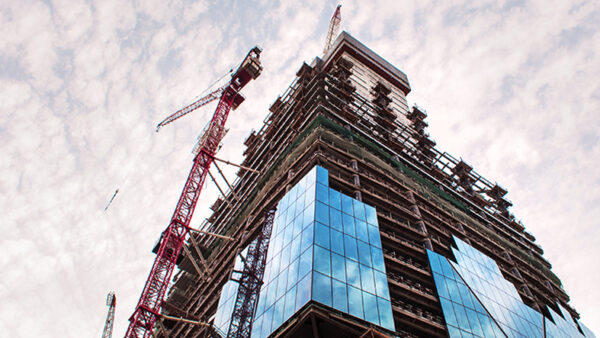
Do you want a side order of “social value” with your new homes, new school or new offices? Increasingly, the answer from public sector clients and even some private developers is “yes”. And the industry is happy to oblige, knowing the scale of the multi-million investments passing through its books, the ability of major construction projects to catalyse regeneration in a locality, and the overall benefits that flow from training young people, and supporting local businesses.
Of course, as anyone who ever dines out will know, these side orders do inflate the overall bill. When contractors are delivering bespoke training programmes and work placements, targeting their local spend – and simply diverting attention from their core business – there will be a cost. Mostly companies, will simply pass this on to the clients (and let’s assume they actually delivered what they costed for). Or in the worst case scenario, it will reduce their profit margin and ability to invest.
And in the light of the industry’s current focus on reforming and boosting its capacity to train young people, following on from last month’s No more lost generations report, another possible cost is that social value policies naturally create a patchwork of local training initiatives – many of them excellent – that nevertheless divert attention away from a coordinated national approach and a consistent baseline that everyone can work to.
No one is saying the industry shouldn’t shoulder some responsibility for strengthening the social fabric as it creates our new physical fabric. After all, the industry exists to build the facilities needed by our society and economy, so it’s in construction’s overall long term interests to help strengthen them in the first place. Nevertheless, there has to be an awareness that construction can’t provide an endless shopping list of social benefits without creating costs.
Then there’s Qatar, and the question of whether the industry can deliver a side-order of social justice and legal reform alongside the stadia, hotels and infrastructure. That’s the intention behind the CIOB’s decision to hold this year’s Members’ Forum in the Gulf state. But it’s a tougher ask. In Qatar, a picture is emerging of a country with a relatively thin layer of accountable and reform-minded government, presiding over a deeply entrenched kafala system.
So can construction make a difference in Qatar? As with social value in the UK, there has to be recognition that there are limitations on what it can do alone, and probably costs too. But as with the UK, construction isn’t, or shouldn’t be, a commercially-driven entity that simply sucks up money and moves on. Its interests lie in building responsibly and sustainably, in all senses. It will be challenging to make changes in Qatar, but the industry should certainly be trying.










